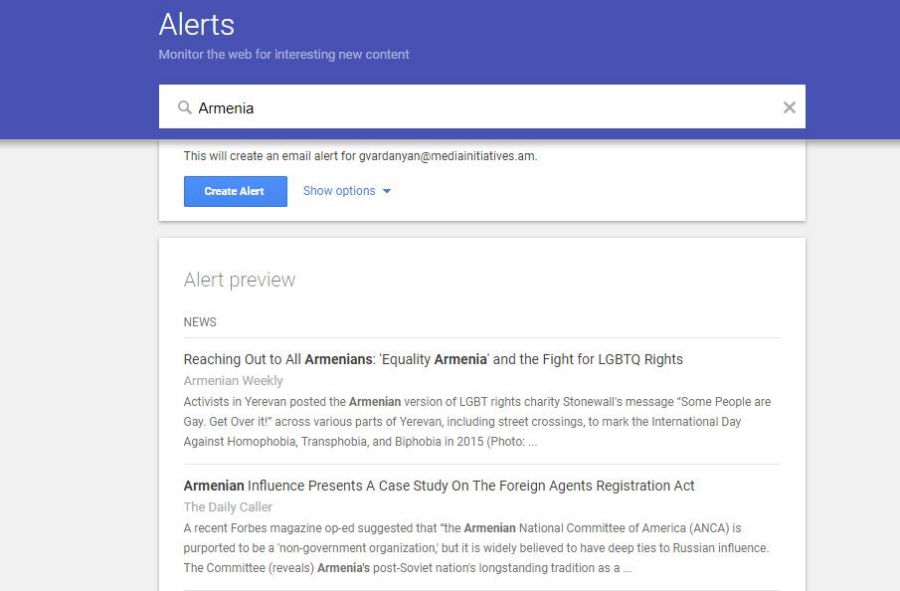We are not against foreign investment in the country. At least a quarter of what the government announced wouldn’t be bad.
We want the world to listen less to Azerbaijani propaganda and know the truth about the Karabakh conflict.
And thus we can listen numerous points, some part of the implementation of which depends also on the media and on how Armenia will be represented in media outlets.
International media outlets’ direct interest in Armenia is not that great (of course, if there isn’t an extraordinary event).
For this reason, it’s important how flows of information are formulated in Armenia, how events are presented by newsmakers and local media outlets. Of course, we’re talking about the English- and Russian-language news in the country.
I want to express a subjective opinion as to why everything’s not very good. Let me say up front that what I will now mention is not unequivocal; there are exceptions, but the situation is mainly like this:
- The majority of newsmakers don’t know how to present themselves. This is a feature sown in school: to be unable to speak at ease; to be concise, clear, and understandable; to speak without pathos.
- The public relations departments of organizations mainly aim to ensure a regular presence in local media outlets, putting the emphasis on paid articles, which are uninteresting even for those preparing those articles.
The articles are rarely done in a way that they would interest anyone outside of Armenia.
- The media outlets, in turn, don’t set a goal to formulate articles at least according to the rules of traditional journalism. Rarely is news written and served in such a way that a reader living abroad would be able to understand what is being discussed.
The articles contain no explanation about the people and organizations the piece is about, why they’ve gathered here, and what they were up to before this moment.
The articles are written as though the whole world, breath abated, is following Armenia’s politics and economy, and everyone knows the background in detail.
- In general, not only is there no attempt to normally present Armenia outside of Armenia and be integrated with the international flows of information, but also in analyses of different issues, Armenian media outlets don’t try to encompass foreign experts.
We can simply carry out a statistical survey, observing in the span of a year how many foreign experts Azerbaijani and Armenian media outlets have worked with. I think the answer is obvious.
- Very few Armenian media platforms are included in main news aggregators such as Google News and Yandex News.
The emphasis is mainly placed on Facebook, and very few media outlets view Twitter as a serious platform. As a result, they have a low presence in flows of information for those looking “from outside.”
I could also talk about the fact that Armenian media outlets’ English in many cases is difficult to understand for those who didn’t learn English with Bonk’s textbook of the English language.
The combination of all the aforementioned points leads to a situation whereby Armenia, in many matters, depends on news formulated in other countries.
Samvel Martirosyan







